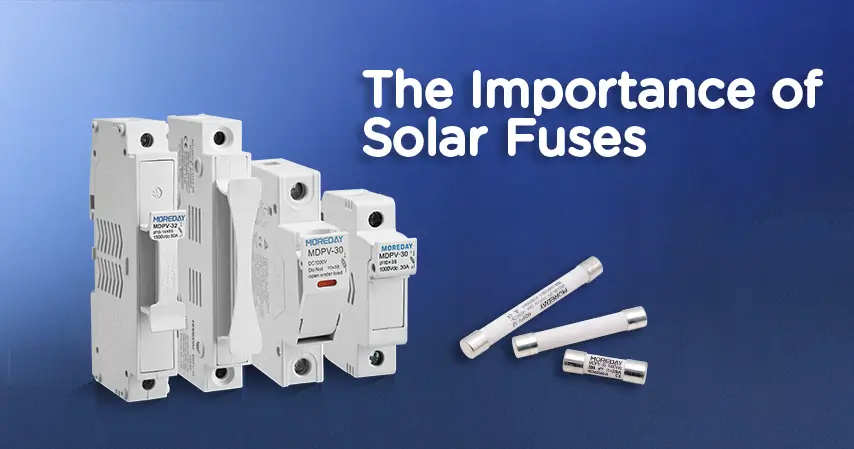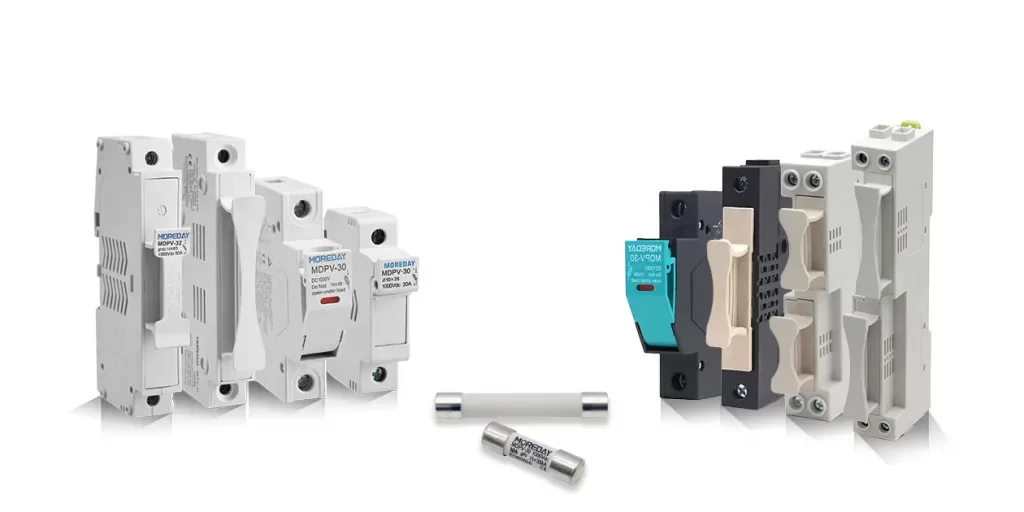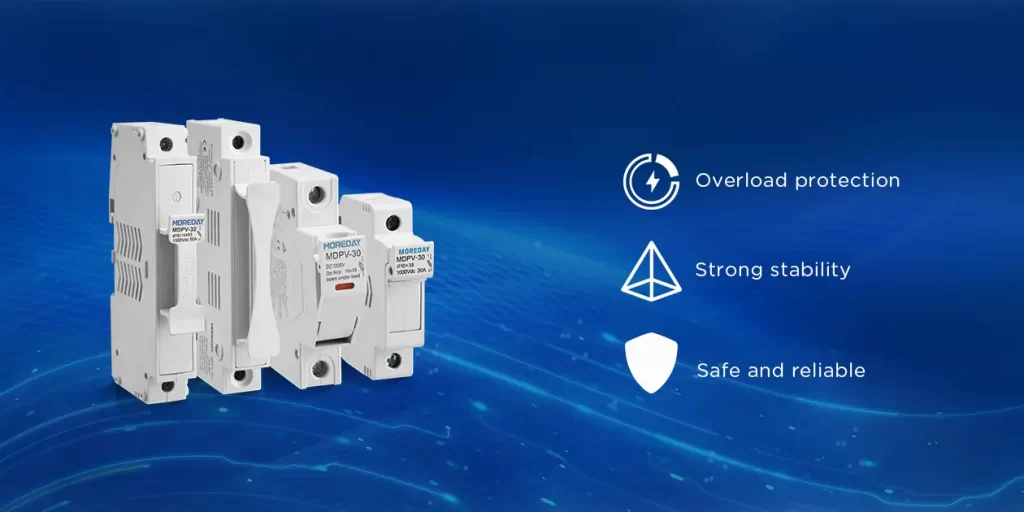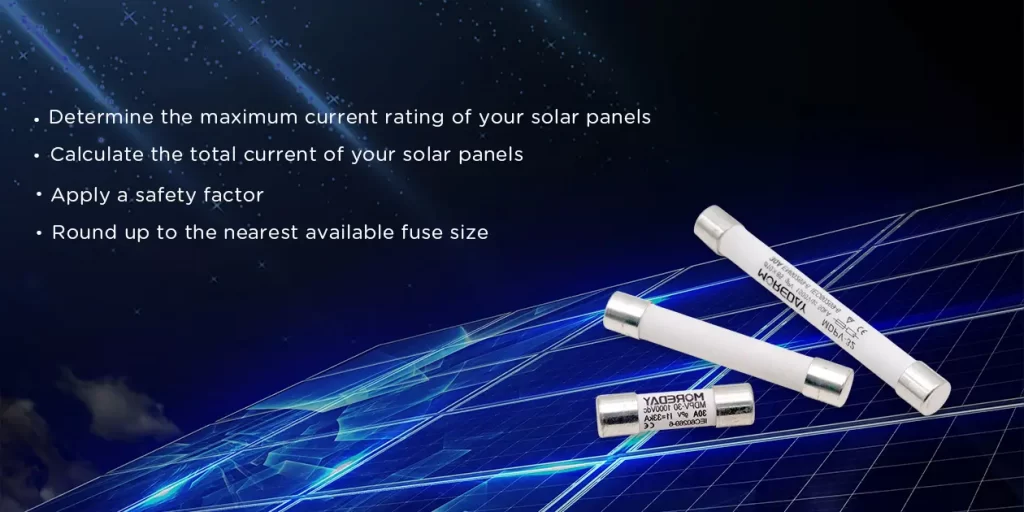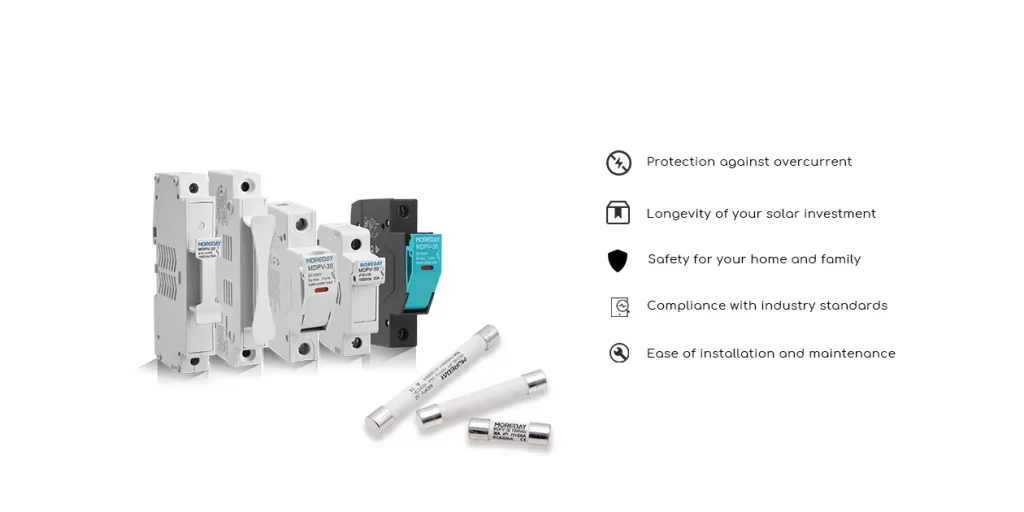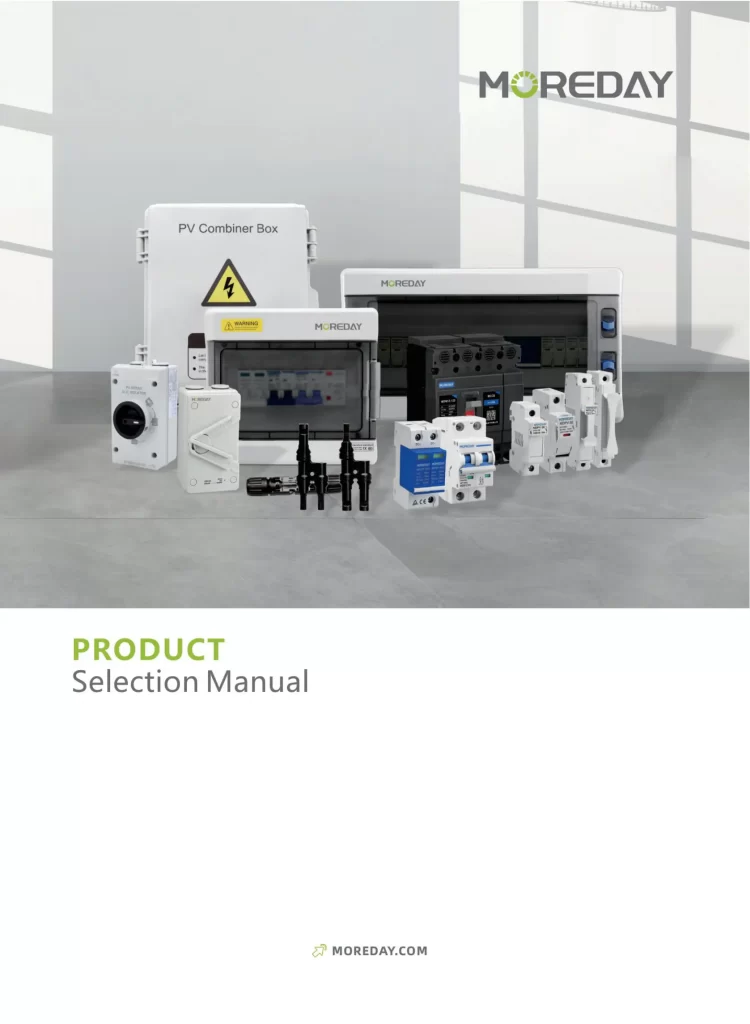What is a Solar Fuse?
A solar fuse, also known as a photovoltaic (PV) fuse, is an essential component in any solar power system. It is designed to protect the system from overcurrent conditions, which can lead to fires or damage to electrical components.
Unlike traditional fuses, solar fuses are specifically designed to handle the unique characteristics of PV systems. They are capable of responding to fault currents that are common in solar circuits, ensuring the safety and longevity of your solar investment.
When exposed to excessive current, a solar fuse uses a conductor that melts, breaking the circuit and preventing further damage. This interruption of the flow of electricity helps to protect the wiring, solar panels, inverters, batteries, and other components from overheating and potential fire hazards.
There are two main types of solar fuses: fast-blow fuses and slow-blow fuses. Fast-blow fuses are designed to blow or melt almost immediately when exposed to an overcurrent, making them ideal for smaller circuits or electronic devices. Slow-blow fuses, on the other hand, can handle small surges or inrush currents without blowing, making them suitable for larger circuits such as motors or power supplies.
In a solar power system, solar fuses are typically installed at key locations to provide targeted protection. These locations include the panel cables to protect parallel-wired modules or strings, between the solar fuse block or combiner box and the charge controller, between the charge controller and the battery or battery bank, and between the battery and the inverter.
Choosing the right size and type of solar fuse for your system is crucial for ensuring proper protection. It is recommended to consult with a licensed electrician or solar installer to determine the appropriate fuse size based on factors such as the amperage rating of your components and the overall design of your system.
By incorporating solar fuses into your PV installation, you can have peace of mind knowing that your system is safeguarded against overcurrent conditions, reducing the risk of fires and equipment damage.
The Purpose of Solar Fuses
Solar fuses play a crucial role in ensuring the safety and optimal performance of your solar power system. These fuses are specifically designed to protect your solar circuits from excessive currents, such as short circuits or overloads, that can lead to fires or damage to your electrical components.
One of the main purposes of solar fuses is to prevent the wiring in your system from overheating. When an overcurrent occurs, the fuse acts as a safety mechanism by interrupting the flow of electricity. This prevents the wires from getting too hot and potentially causing a fire. By installing the appropriate fuses, you can mitigate the risk of electrical hazards and protect your investment in solar energy.
In addition to protecting your wiring, solar fuses also safeguard your solar equipment from damage. Faulty equipment or lightning strikes can cause abnormal currents that may result in irreversible harm to your solar panels, inverters, or batteries. By using properly sized fuses, you can prevent these components from being damaged and ensure their longevity.
Choosing the right size and type of solar fuses is crucial for their effectiveness. The fuses must be able to handle the maximum current that your system can generate without blowing prematurely. It is recommended to consult with a licensed electrician or solar panel installer to determine the appropriate fuse ratings for your specific system.
By understanding the purpose of solar fuses and implementing them correctly in your solar power system, you can ensure the safety and reliability of your renewable energy setup. Remember, safety should always be a top priority when harnessing the power of the sun.
How to Size a Solar Fuse
Sizing a solar fuse correctly is crucial for the safety and optimal performance of your solar system. By determining the appropriate fuse size, you can ensure that your wiring is protected from overheating and potential fire hazards. Here are the steps to follow when sizing a solar fuse:
Determine the maximum current rating of your solar panels: Check the specifications of your solar panels to find the maximum current rating. This information is usually provided by the manufacturer.
Calculate the total current of your solar panels: If your panels are connected in series, the current remains the same, but if they are connected in parallel, you need to add up the individual panel currents.
Apply a safety factor: To ensure that your fuse can handle any fluctuations or surges in current, it is recommended to multiply the total current by a safety factor. A common safety factor is 1.25, but you can adjust it based on your specific system requirements.
Round up to the nearest available fuse size: Once you have calculated the fused current, round it up to the nearest available fuse size. It is important to choose a fuse that is equal to or slightly higher than the fused current to provide adequate protection.
Remember to consult the manufacturer’s guidelines and recommendations for fuse sizing, as they may provide specific instructions for your solar system. Additionally, it is always recommended to seek professional advice from a licensed electrician or solar installer to ensure accurate fuse sizing and proper installation.
By correctly sizing your solar fuse, you can safeguard your system against potential hazards and ensure the longevity of your solar components.
Installing Solar Fuses in Your System
When it comes to installing solar fuses in your system, there are a few key factors to consider. First and foremost, it is crucial to consult with a licensed electrician or solar panel installer to ensure that the fuses are installed correctly and in compliance with local regulations.
The first step in the installation process is to determine the appropriate locations for the fuses. As mentioned earlier, fuses are typically installed between the charge controller and the battery bank, between the charge controller and the solar panels, and between the battery bank and the inverter. These locations provide optimal protection for the wiring and components in your solar system.
Once you have identified the locations for the fuses, the next step is to select the correct fuse sizes. This is determined by considering factors such as the amperage rating of the charge controller, the number and configuration of the solar panels, and the wattage of the inverter. It is important to follow the manufacturer’s guidelines and consult with a professional to ensure that the fuse sizes are appropriate for your specific system.
After determining the fuse sizes, the fuses can be installed in their designated locations. It is crucial to ensure that the fuses are securely connected and properly seated in their respective fuse holders. This will help to prevent any loose connections or potential hazards.
Finally, it is important to regularly inspect and maintain the fuses in your solar system. This includes checking for any signs of damage or wear, replacing any blown fuses promptly, and ensuring that the fuses are functioning properly.
By following these guidelines and working with a professional, you can ensure that the solar fuses in your system are installed correctly and provide the necessary protection for your solar panels and electrical components.
Types of Solar Fuses
When it comes to selecting the right solar fuse for your system, there are several options to consider. Each type of fuse has its own unique characteristics and advantages. Here are some of the most common types of solar fuses:
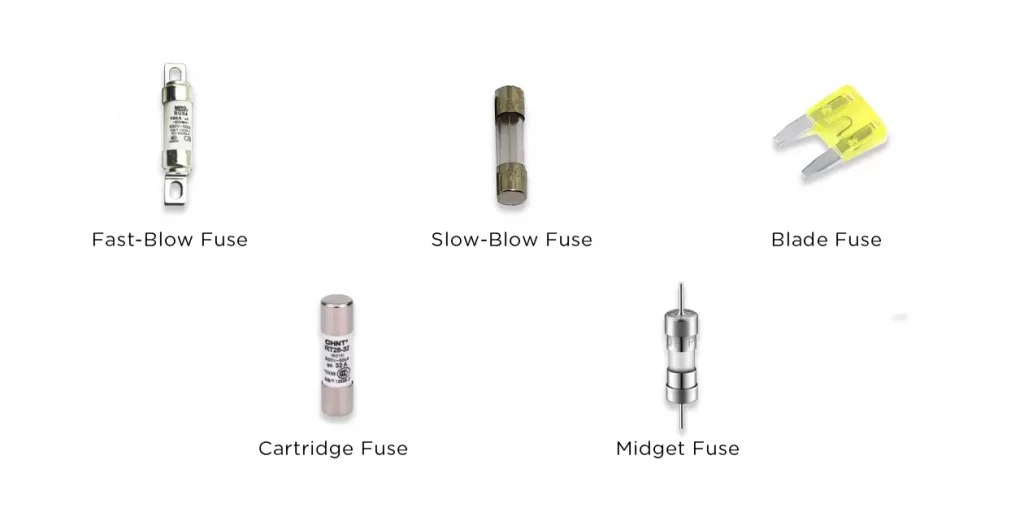
Fast-Blow Fuse: This type of fuse is designed to blow or melt almost immediately when exposed to an overcurrent. Fast-blow fuses are typically used to protect smaller circuits, such as those found in electronic devices or circuits that will not experience large inrush currents.
Slow-Blow Fuse: Unlike fast-blow fuses, slow-blow fuses can handle small surges or inrush currents without blowing. They are best at protecting larger circuits, such as those found in motors or power supplies. Slow-blow fuses are capable of handling the initial inrush current without interrupting the circuit.
Blade Fuse: Blade fuses, also known as automotive fuses, are commonly used in solar systems. They are available in various amperage ratings and can be easily replaced if needed. Blade fuses are designed to fit into fuse holders or fuse blocks, providing a secure connection.
Cartridge Fuse: Cartridge fuses are cylindrical in shape and come in different sizes and amperage ratings. They are commonly used in high-power applications and provide reliable protection against overcurrents. Cartridge fuses can be either fast-blow or slow-blow, depending on the specific requirements of the system.
Midget Fuse: Midget fuses, also known as Class CC fuses, are compact in size and offer high interrupting ratings. They are commonly used in solar systems where space is limited. Midget fuses provide excellent protection against overcurrents and are designed to be easily replaced.
When selecting a solar fuse, it is important to consider the specific requirements of your system and consult with a professional to ensure the right fuse is chosen. The type of fuse you select will depend on factors such as the size of the circuit, the expected current flow, and the level of protection required. By choosing the appropriate fuse, you can ensure the safety and reliability of your solar system.
Benefits of Using Solar Fuses
When it comes to your solar power system, using solar fuses offers several important benefits. Here are some key advantages of incorporating solar fuses into your system:
Protection against overcurrent: Solar fuses act as a safeguard against excessive currents that can occur due to short circuits, faulty equipment, or lightning strikes. By quickly interrupting the circuit when an overcurrent is detected, solar fuses prevent damage to your solar equipment and minimize the risk of fire.
Longevity of your solar investment: By properly sizing and installing solar fuses, you can ensure the longevity of your solar panels, inverters, and batteries. Solar fuses protect these components from potential damage caused by overcurrents, helping to extend their lifespan and optimize their performance.
Safety for your home and family: The use of solar fuses enhances the safety of your solar power system. By preventing overheating of wires and potential fires, solar fuses provide peace of mind and protect your home and loved ones from electrical hazards.
Compliance with industry standards: Incorporating solar fuses into your system ensures compliance with industry standards and regulations. This is particularly important for grid-tied systems, where safety measures are crucial to protect both your own property and the electrical grid.
Ease of installation and maintenance: Solar fuses are designed to be easy to install and maintain. With plug-and-play connectors and waterproof features, solar fuses can withstand various environmental conditions and provide reliable protection for your solar system.
By utilizing solar fuses, you can enhance the safety, performance, and longevity of your solar power system. With their ability to protect against overcurrents and minimize the risk of damage or fire, solar fuses are an essential component for any solar installation. Ensure the proper sizing and installation of solar fuses to maximize the benefits they offer and enjoy the peace of mind that comes with a well-protected solar system.
Common Mistakes to Avoid with Solar Fuses
When it comes to solar fuses, there are a few common mistakes that people often make. By being aware of these mistakes, you can ensure that your solar system is properly protected and functioning at its best. Here are some common mistakes to avoid with solar fuses:
Not properly sizing the fuse: One of the most important aspects of using a solar fuse is ensuring that it is properly sized for your system. Using a fuse that is too small can result in frequent blowing and interruptions in power, while using a fuse that is too large can compromise the safety of your system. It is essential to calculate the fuse size based on the specifications of your solar panels and other components.
Incorrect installation: Another common mistake is improper installation of the solar fuse. It is crucial to follow the manufacturer’s guidelines and recommendations for installation. This includes ensuring proper connections, securing the fuse in the correct location, and using appropriate wiring techniques. Incorrect installation can lead to a lack of protection and potential damage to your solar system.
Neglecting regular maintenance: Solar fuses, like any other electrical component, require regular maintenance to ensure their effectiveness. This includes checking for any signs of wear or damage, such as corrosion or loose connections. Regular inspections and maintenance can help identify any issues early on and prevent potential problems down the line.
Using low-quality fuses: It may be tempting to opt for cheaper, low-quality fuses to save money. However, using inferior fuses can compromise the safety and performance of your solar system. Investing in high-quality fuses from reputable manufacturers is essential to ensure reliable protection and longevity of your system.
By avoiding these common mistakes and taking the necessary precautions with your solar fuses, you can ensure the safety and efficiency of your solar system. Remember to always consult with a qualified professional for guidance and assistance when installing or maintaining your solar fuses.
Derek Ke
Hey, I’m Derek Ke, the founder of Moredaydc.com, an expert in solar electrical products and ev charging.
In the past 15 years, we have helped 60 countries and nearly 500 customers (such as farms, residences, industrial and commercial) solve new energy and green power problems. This article aims to share more knowledge about solar electricity and new energy with everyone, so that green electricity can enter every home.
Make Electricity Available To All People

